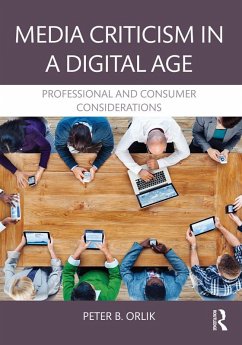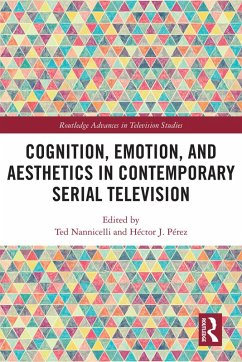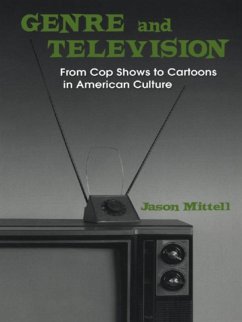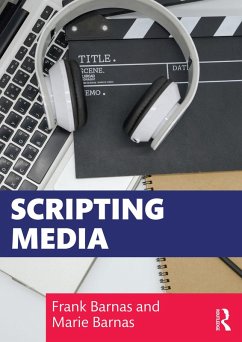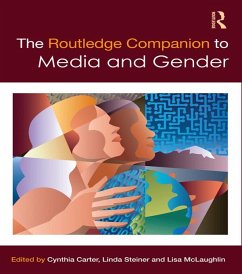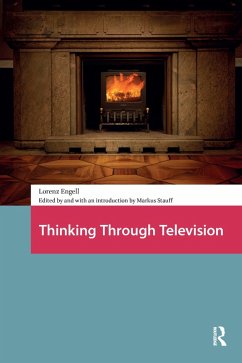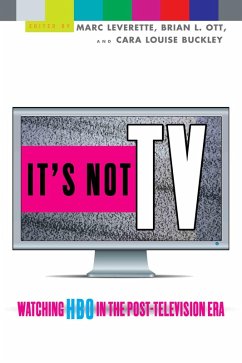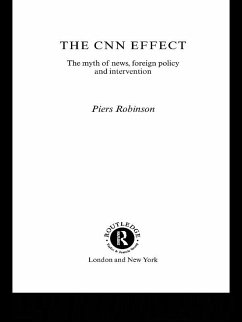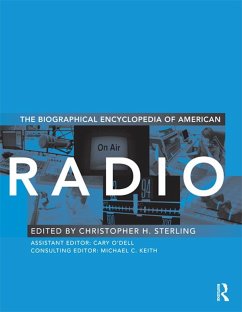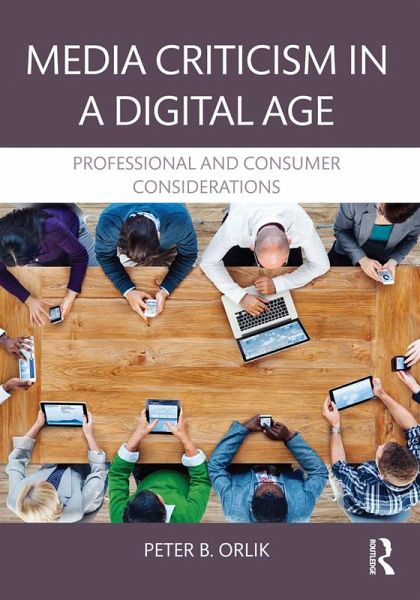
Media Criticism in a Digital Age (eBook, ePUB)
Professional And Consumer Considerations
Versandkostenfrei!
Sofort per Download lieferbar
76,95 €
inkl. MwSt.
Weitere Ausgaben:

PAYBACK Punkte
38 °P sammeln!
Media Criticism in a Digital Age introduces readers to a variety of critical approaches to audio and video discourse on radio, television and the Internet. It is intended for those preparing for electronic media careers as well as for anyone seeking to enhance their media literacy. This book takes the unequivocal view that the material heard and seen over digital media is worthy of serious consideration.Media Criticism in a Digital Age applies key aesthetic, sociological, philosophical, psychological, structural and economic principles to arrive at a comprehensive evaluation of programming and...
Media Criticism in a Digital Age introduces readers to a variety of critical approaches to audio and video discourse on radio, television and the Internet. It is intended for those preparing for electronic media careers as well as for anyone seeking to enhance their media literacy. This book takes the unequivocal view that the material heard and seen over digital media is worthy of serious consideration.
Media Criticism in a Digital Age applies key aesthetic, sociological, philosophical, psychological, structural and economic principles to arrive at a comprehensive evaluation of programming and advertising content. It offers a rich blend of insights from both industry and academic authorities. These insights range from the observations of Plato and Aristotle to the research that motivates twenty-first century marketing and advertising. Key features of the book are comprised of:
Media Criticism in a Digital Age equips emerging media professionals as well as perceptive consumers with the evaluative tools to maximize their media understanding and enjoyment.
Media Criticism in a Digital Age applies key aesthetic, sociological, philosophical, psychological, structural and economic principles to arrive at a comprehensive evaluation of programming and advertising content. It offers a rich blend of insights from both industry and academic authorities. These insights range from the observations of Plato and Aristotle to the research that motivates twenty-first century marketing and advertising. Key features of the book are comprised of:
- multiple video examples including commercials, cartoons and custom graphics to illustrate core critical concepts;
- chapters reflecting today's media world, including coverage of broadband and social media issues;
- fifty perceptive critiques penned by a variety of widely respected media observers and;
- a supplementary website for professors that provides suggested exercises to accompany each chapter (www.routledge .com/cw/orlik)
Media Criticism in a Digital Age equips emerging media professionals as well as perceptive consumers with the evaluative tools to maximize their media understanding and enjoyment.
Dieser Download kann aus rechtlichen Gründen nur mit Rechnungsadresse in A, B, BG, CY, CZ, D, DK, EW, E, FIN, F, GR, HR, H, IRL, I, LT, L, LR, M, NL, PL, P, R, S, SLO, SK ausgeliefert werden.




